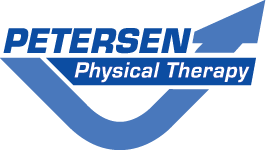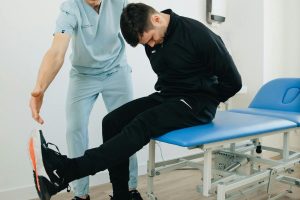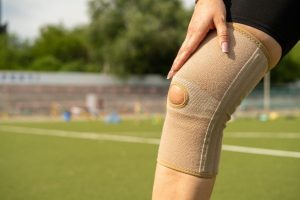One of the recommendations we often make to our patients is that they pursue a good sleep schedule along with their physical therapy. The physical therapy process involves targeted exercises and movements designed to help muscles and connective tissue recover, and getting proper sleep is one of the most advantageous ways to cut the time it takes for your tissues to heal.
Proper sleep significantly aids the physical therapy process by supporting the body’s natural recovery mechanisms, improving pain management, and maximizing the effectiveness of therapeutic interventions, contributing to overall healing.
In this article, we’ll discuss why physical therapy and sleep go hand in hand, and we’ll make some recommendations for patients looking to recover.
Why physical therapy and sleep go hand in hand
We all know that sleep is a cornerstone of health. However, we often overlook its value as a regenerative process for the physical body, even if we’re taking proper rest days between physical therapy sessions.
Quality sleep facilitates the body’s recovery from physical exertion. This is true whether we’re discussing recovery from a normal exercise routine or recovery from targeted isolation exercises, such as those that we prescribe as physical therapists.
As a physical therapy patient, you will be performing very specific movements with the aim of improving the strength and mobility in the affected joints causing you pain. If we can expedite the process of your body recovering from your exercises, then we can shorten the amount of time it will take you to heal.
The fact is that if we take two patients with the same injury and the same life circumstances, and the same physical therapy program, the patient with better sleep health will often be the one who recovers faster and doesn’t experience pain after physical therapy.
How to optimize sleep for maximal recovery during physical therapy
Many of us are aware of some of the “stock” answers for how to improve sleep quality and ensure we’re getting the recommended 7-8 hours of solid sleep each night:
- Go to bed at the same time every night, even on the weekends
- Limit exposure to screens before bed
- Limit your caffeine intake later in the day
However, there are some less obvious sleep hygiene tips our patients often benefit from implementing. Remember that being in bed for eight hours is not the same as sleeping for 8 hours!
First, you can optimize your water intake to limit the number of times you’re getting up in the middle of the night. Waking up in the middle of the night is a surefire way to cut your sleep, since you’re having to get up and then fall asleep again.
We recommend getting plenty of fluids with dinner, and hydrating up until about 2 hours before bedtime. This will decrease your need to drink lots of water directly before bed, thus decreasing your sleep disturbances in the middle of the night.
Second, factor in the amount of time it takes you to fall asleep. If you’re planning to sleep for eight hours, you likely need to be physically in bed for 8.5 hours.
Lastly, create an optimal sleep environment by ensuring that your room is dark, quiet, and cool. Everyone’s preferences will be slightly different, but one thing that’s true is that leaving a television playing or keeping the room too hot will diminish your sleep quality and therefore your ability to recover.
The benefits of optimal sleep on physical therapy outcomes
Faster recovery
As stated above, getting proper sleep will allow you to recover more quickly and more completely. This ensures that your body and your joints will be fresh, recovered, and ready for the next physical therapy session in a couple of days. Improving your recovery will serve an important role in your overall course of treatment.
Better emotional state
There’s something to be said for a positive emotional state during this time. Recovering from a physical injury can be frustrating, especially if it’s an issue you’ve been dealing with for months or years.
Getting proper sleep facilitates a more positive outlook, which can affect your ability to complete your sessions and your motivation to follow your home exercise program.
More energy to devote to your physical therapy sessions
Aside from the benefit of proper sleep facilitating a faster recovery from your injury, getting better sleep between physical therapy sessions will allow you to actually work harder and remain focused for longer during your sessions.
Remaining focused on the exercise at hand is part and parcel to the exercise’s effectiveness. If you’re more rested, more motivated, and seeing progress, you’re more likely to devote all your attention to the exercise program while you’re in the office.
Better overall health
Aside from the more niche benefits to your recovery from your physical therapy sessions, you’ll experience better overall health if you get a good night’s sleep more often. Good sleep is associated with improved immune function and proper functioning of numerous bodily systems.
Conclusion
The symbiotic relationship between sleep and physical therapy underscores the importance of a holistic approach to health and well-being. In fact, it’s one of a number of factors that we often need to tweak when a patient feels like their physical therapy isn’t working.
If you’re unsure of how to implement some of these suggestions into your routine, discuss it with your physical therapist! They should have some good suggestions on how to optimize your routine outside of the office to ensure that you’re pain-free in no time.
Whether you’re seeking relief from chronic pain, managing stress, or simply aiming to enhance your overall wellness, the importance of proper sleep on physical therapy holds the potential to keep you recovered and injury-free for many years to come.

















